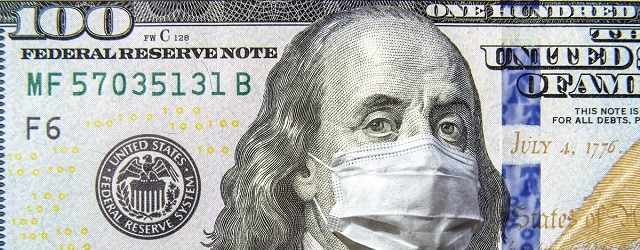Private equity enters the coronavirus pandemic with a record cash surplus that may help cash-strapped businesses with good long-term prospects survive.

Many businesses around the world are focused on ensuring they have the liquidity they need to weather the coronavirus pandemic.
Private equity has no shortage of cash, with a record high $1.46 trillion of dry powder that will be invested over a five-to-seven-year horizon as of June according to Preqin’s quarterly report. Furthermore, between April 17 and April 3, companies raised $287 billion through bond issuances, more than during the entire second quarter of 2019, according to LCD.
That has opened up the potential for a wealth of capitalist matchmaking between companies in need of money and these high-powered investors ready with capital for the companies best positioned to weather—or even get a boost from—the coronavirus pandemic, and trying to figure out how the recovery might play out.
“This crisis is still very much unfolding in real time,” says Robert Baltimore, managing director and co-head of M&A at Harris Williams. “The deployment of rescue capital and investments to help companies right-size their balance sheets—that’s starting now and will pick up through the rest of April and through May.”
Private equity firms are using cashflow forecasting to evaluate their portfolios. “Some businesses may be left unsupported to make it on their own,” says Paul Aversano, Alvarez & Marsal managing director and global practice leader of its Transaction Advisory Group. “For the businesses worth saving, they’re looking out 90 days to see how much cash they can raise. If there’s a shortfall based on their own internal models, most private equity firms will allocate a certain amount of capital in their existing fund to prop up these businesses.”
These additional equity checks will ultimately hurt returns, though, because these funds are added to the cost basis. There’s an opportunity cost to equity infusions as well since that money was originally intended for new deals. If these liquidity injections are not enough, then private equity firms will solicit outside investors to provide rescue capital.
“Private equity will start to look at businesses that are uniquely impacted due to social distancing restrictions because consumers can’t get out, but the businesses will be valuable with a long-term horizon,” said Baltimore. “Private equity will seek these out to deploy capital in a manner that stretches that horizon or comes in the form of general rescue capital to support good businesses that weren’t structured to handle the authoritative stance that you have to lock your doors.”
As lockdowns end, so will private equity’s reluctance to invest in new ventures. “Asia is a few months ahead of the US and Europe, and life is starting to return to normal, especially in Wuhan, and it’s not a surprise that private equity firms are starting to come off the sidelines,” said Aversano. “Investors with more of an appetite for distressed and special situations will be the first ones out of the box—that’s what we’re seeing in Asia right now—and then less risk-averse investors will follow.”



